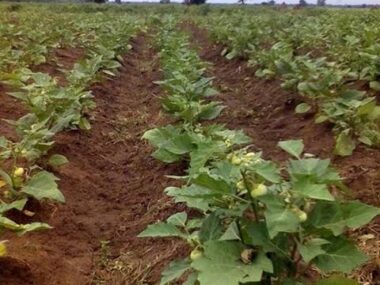Introduction:
Pest management is a critical aspect of organic farming, where the emphasis is on natural and sustainable methods to control pests while minimizing harm to the environment, human health, and non-target organisms. In this comprehensive guide, we explore effective strategies and practical tips for successfully managing pests in organic farming systems.

Understanding Pest Management in Organic Farming:
Integrated Pest Management (IPM): Integrated Pest Management is a holistic approach that combines various pest control methods to minimize pest damage while reducing reliance on synthetic pesticides. In organic farming, IPM emphasizes prevention, monitoring, cultural practices, biological control, and selective pesticide use as a last resort. Implementing an IPM plan tailored to specific crops and pest pressures is key to successful pest management.
Crop Rotation: Crop rotation is a fundamental practice in organic farming that disrupts pest life cycles and reduces pest buildup in the soil. Rotating crops with different growth habits and nutrient requirements helps break disease and pest cycles, prevents soil depletion, and promotes overall soil health. Strategic crop rotation plans based on pest susceptibility and plant families can effectively manage pests while maintaining soil fertility.
Beneficial Insects and Natural Predators: Encouraging natural predators and beneficial insects is an essential component of organic pest management. Ladybugs, lacewings, parasitic wasps, and predatory mites are among the many beneficial insects that prey on pests such as aphids, caterpillars, and mites. Providing habitat diversity, planting insectary crops, and minimizing pesticide use help support populations of beneficial insects, creating a balanced ecosystem where pests are kept in check naturally.
Trap Crops and Companion Planting: Trap crops and companion planting are tactics used to divert pests away from main crops or deter them through plant associations. Trap crops, such as mustard greens or marigolds, attract pests away from valuable crops, serving as sacrificial plants. Companion planting involves strategically pairing crops that benefit each other by repelling pests, attracting beneficial insects, or enhancing soil fertility. Utilizing these techniques can reduce pest pressure and enhance crop resilience in organic farming systems.
Cultural Practices: Cultural practices, such as proper crop spacing, sanitation, and weed management, play a crucial role in pest prevention and control. Good agricultural practices that promote plant health and vigor, such as adequate irrigation, balanced nutrition, and timely harvesting, help plants withstand pest attacks and recover more quickly. Removing crop residues, weeds, and pest habitat from fields reduces pest populations and minimizes disease spread, contributing to overall farm hygiene and pest management.
Organic Pesticides and Biological Controls: Organic pesticides derived from natural sources, such as neem oil, pyrethrin, and insecticidal soaps, are approved for use in organic farming and can be effective against certain pests when used judiciously. Additionally, biological controls, such as microbial insecticides, nematodes, and fungal pathogens, offer targeted and environmentally friendly alternatives to synthetic pesticides. Integrating these organic pest control methods into an IPM framework enhances pest management while maintaining organic certification standards.
Conclusion:
In conclusion, successful pest management in organic farming requires a multifaceted approach that emphasizes ecological balance, biodiversity, and sustainability. By implementing integrated pest management strategies, utilizing natural predators and beneficial insects, practicing cultural and preventive measures, and incorporating organic pesticides and biological controls as needed, organic farmers can effectively manage pests while preserving soil health, biodiversity, and ecosystem resilience. With careful planning, observation, and adaptation, organic farming systems can thrive without compromising environmental integrity or human health. Let us embrace the principles of organic pest management to cultivate healthy crops, resilient ecosystems, and sustainable agriculture for future generations.










